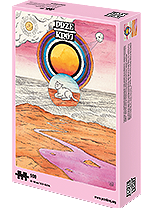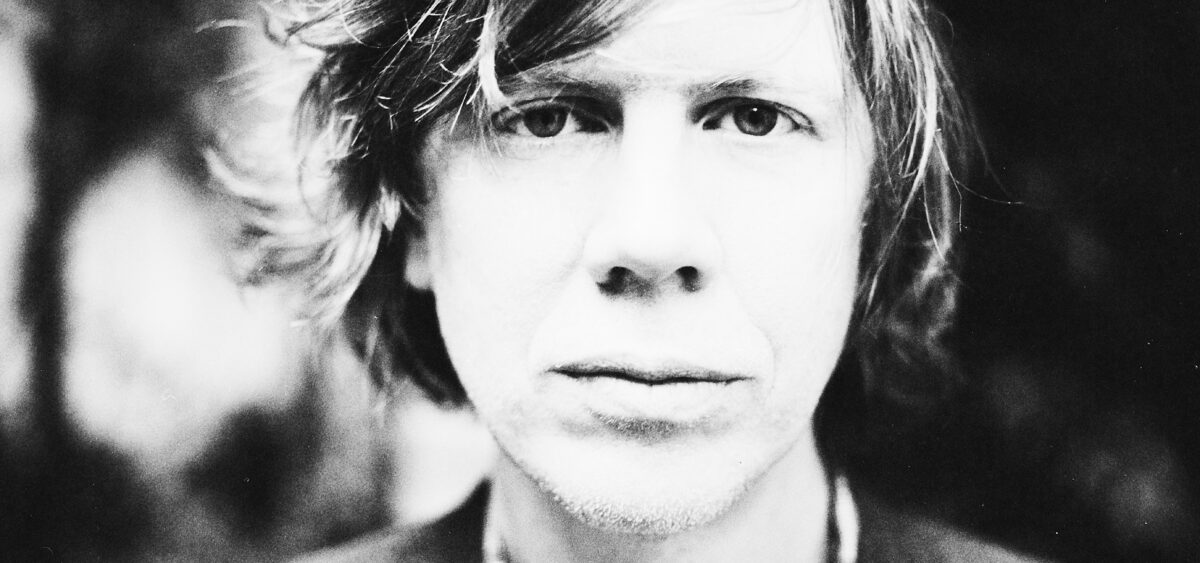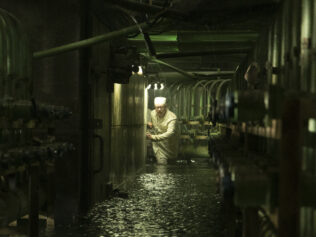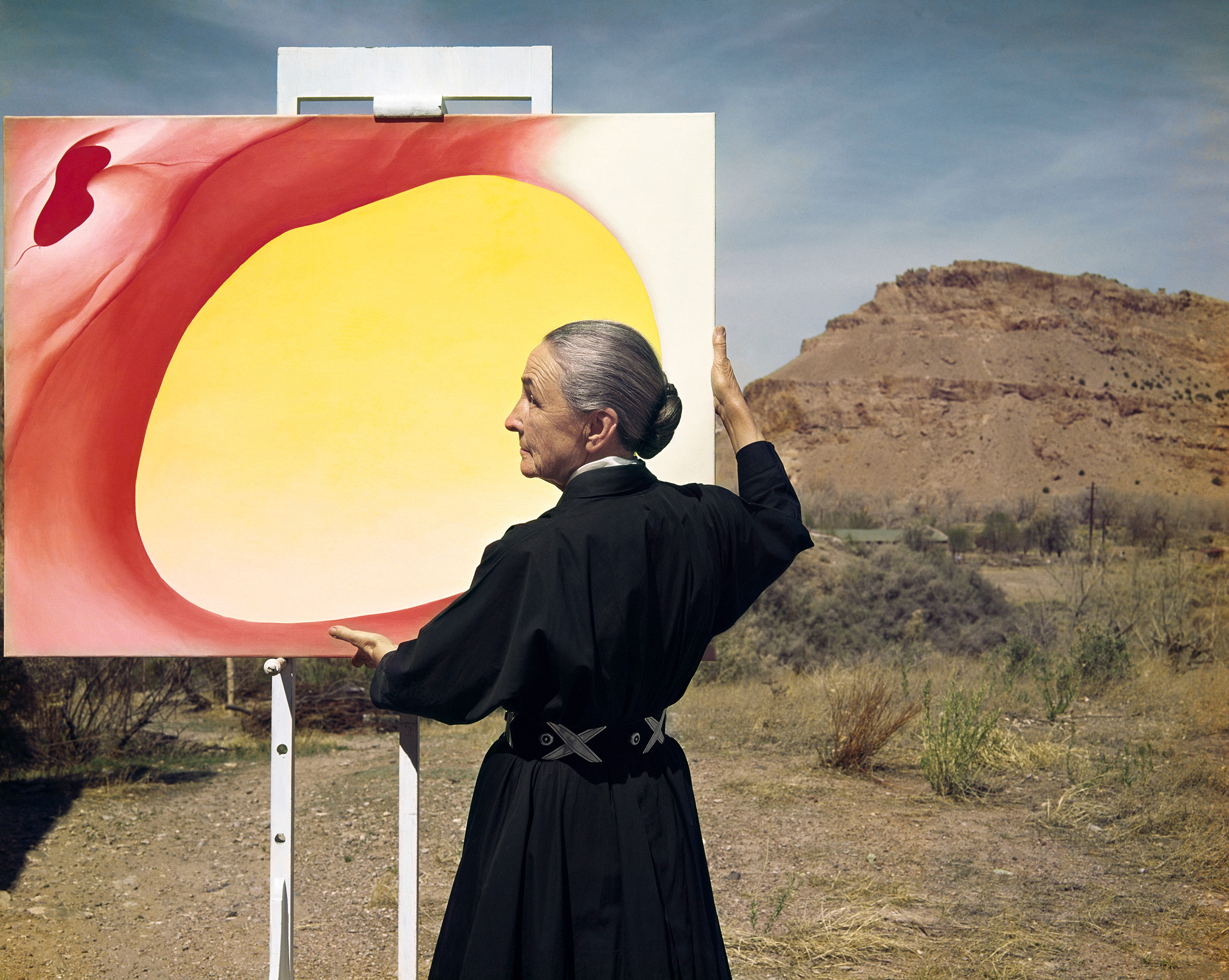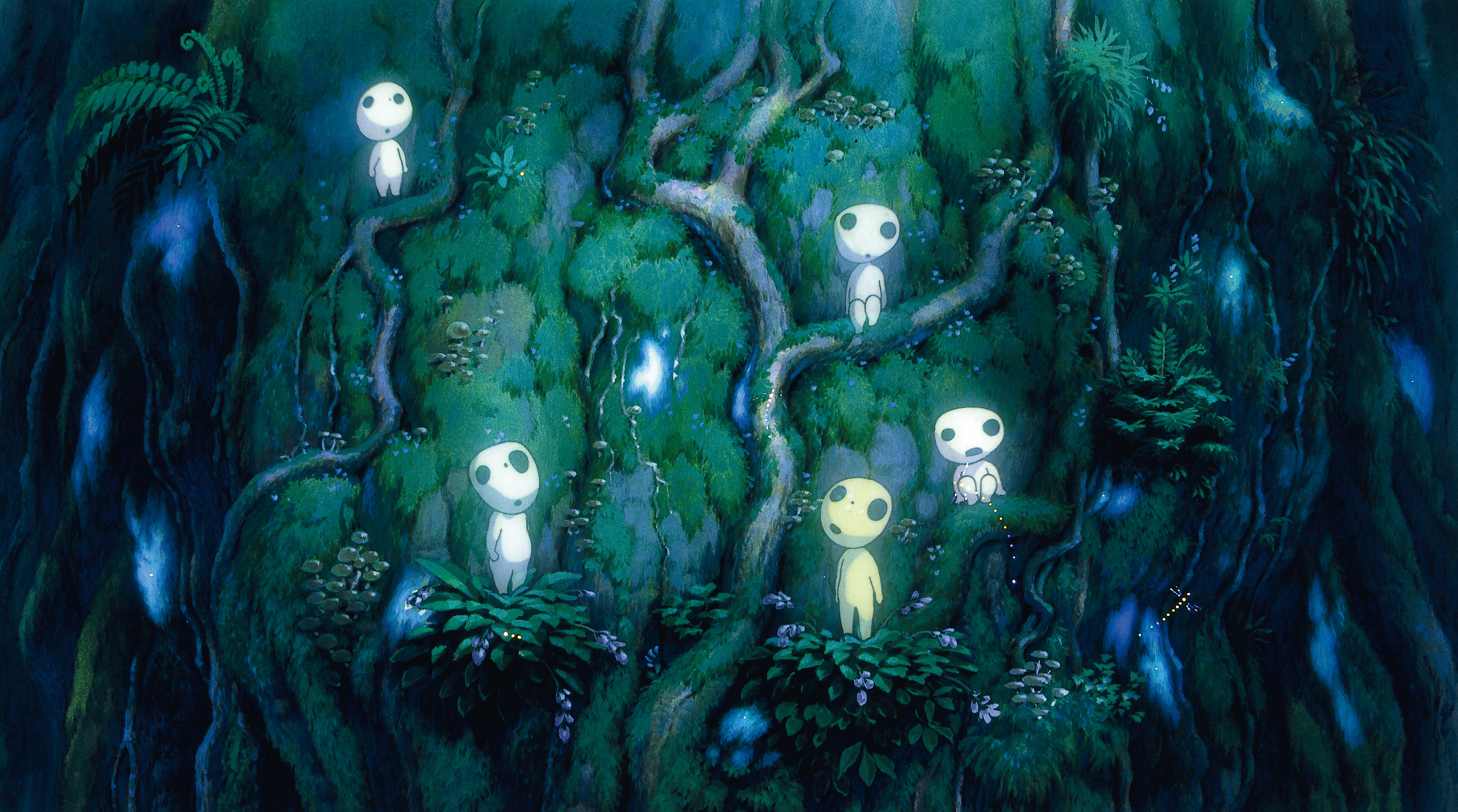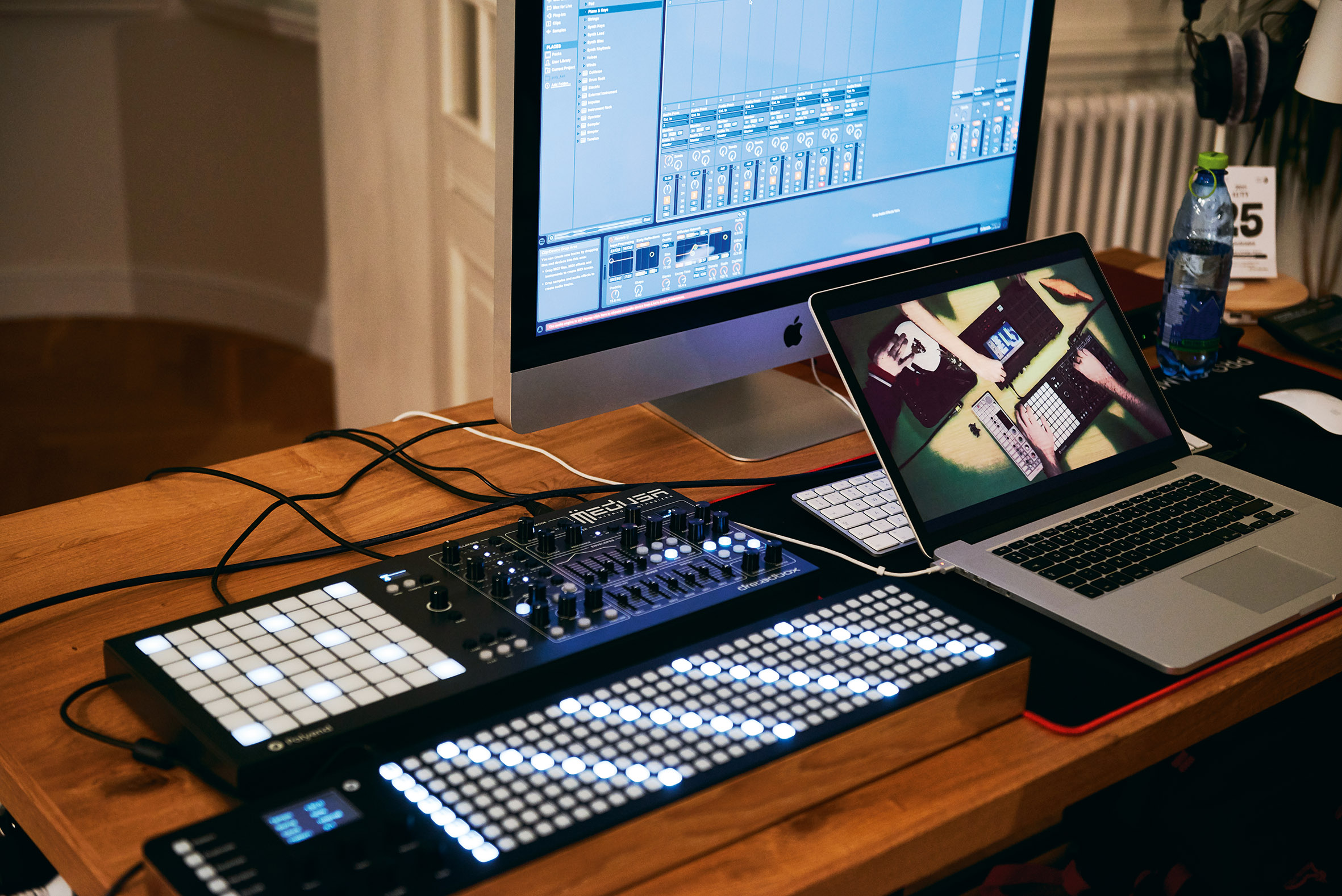
An avant-garde musician, composer, singer, rock and roll guitarist, writer, publisher and editor, Thurston Moore is perhaps most widely known as one of the founding members of Sonic Youth, an extremely influential rock group that was on the scene for 30 years (until 2011).
I first came across the band in 1992 via MTV. Their track “100%” had a rebellious energy, it felt cool and stylish, and the video featuring amazing skateboarders floored me, as back then I was a 13-year-old fascinated by the skate culture and attitude. I only got to know Dirty, the album containing the song, three years later – at school I found a pirate cassette edition that someone had left behind. I know I should have posted a ‘lost property’ note, but I didn’t. It was a serendipitous theft: after Dirty I dug deeper into Sonic Youth’s catalogue; many years later, I translated a handful of poems from Thurston’s chapbook Lion, and in 2015 I finally met him after a Thurston Moore Group show at Warsaw’s Pardon, To Tu.
Thurston Moore recently recorded an instrumental album, Spirit Counsel (2019), as well as By the Fire, which is due out on 25th September 2020. The new records alone were the perfect excuse for a conversation, but we also discussed literature, surviving as an indie publisher, and finding hope and strength in the face of political oppression and the climate crisis. Due to the pandemic, we were unable to meet in person, but that didn’t stop us corresponding via email.
Adam Zdrodowski: You’re incredibly active – you run a record label and a small press, you write, edit, give interviews and, of course, make new music. What is the driving force behind all these activities? How do you keep your creativity flowing?
Thurston Moore: Actually I don’t feel particularly active. I wish I could spring up each morning, run three miles, perform yoga exercises, then spend my hours writing music and words, helping Eva with publishing layouts and record LP production. I love doing this as it happens through the days, falling into some sense of organization. I suppose I don’t see it as ‘work’ per se. If I lived on a mountaintop in a small villa somewhere, I’d probably still be engaged with such things. The ‘activity’ is more akin to a ‘meditation’, really.
A few years ago, you moved from New York to London. What drew you to London? How are the music and poetry scenes different in these two places?
I had fantasized about living in London since first hearing English punk bands in the 1970s and seeing images in the London music weeklies, but New York City was my happening just then and I’m glad I didn’t make such a move. I came here years back to be with Eva, my love, my paramour, who I do everything with. I eventually found a welcoming and amazing scene of experimental music close to where we resided. Meeting James Sedwards and connecting with my friend Deb Googe from My Bloody Valentine to start a solo band was a perfect situation for me to keep performing and playing new music.
There are at least two strains in your music. On the hand, there’s your indie / noisy / alternative, essentially rock side we hear in, among others, Sonic Youth, Chelsea Light Moving and Thurston Moore Group. On the other hand, there are projects exploring contemporary music, noise, free jazz, improvisation, like the series of Sonic Youth Recordings or the collaborative albums with Mats Gustafson, Yoko Ono, John Zorn, Merzbow, Ikue Mori, and many more. How, in your mind, do these currents relate to each other? Do you feel you become a different person – or adopt a different persona – depending on the kind of music you play?
I always wanted to have whatever band I was in to be able to express all the varying strains and disciplines of music that inspired me. But I never wanted to ‘sound’ like anyone or anything else. I wanted it to be completely personal to my own expression. Decisions can be made as to whether a piece of music is three or four minutes long with a more typical rock and roll structure – something I cherish – or whether it reaches out to other forms of expression, where instrumentation, composition, length, etc. would be radically far afield from any traditional rock and roll or listening experience. I feel equal value in either exposition, and to have the margins be blurred in one given piece or song is always a challenge and thrill.
Spirit Counsel, your most recent album, has been called (by Pitchfork’s Stuart Berman) “arguably the most accessible entry point into [your] boundless experimental canon.” I see this album as a bridge between your alternative rock (a tentative, inaccurate label) and the more experimental work. On a deeper level, however, one can view everything you do as a whole. I’ve been thinking about the oxymorons you seem to be fond of, e.g. “ecstatic peace” (a phrase borrowed from Tom Wolfe) or “noise meditation” from the Sonic Youth piece “Thunderclap for Bobby Pin”. It seems like you want to marry opposites, transcend simple binary oppositions, somewhat in the spirit of William Blake. What would say to such an interpretation?
To be fluid in thought, gender and purpose is being one in the universe. It’s possibly not unlike the anti-hero who has LOVE tattooed on one fist and HATE on the other. Though I generally believe in the transference of anything and everything, ultimately, to kindness. The Dalai Lama, a good dude, says his only religion is the religion of kindness. Words to live by.
A similar question, but in regard to your writing: is there a sharp division between your poems and your song lyrics? Do any of your poems end up as songs, and the other way round, or do you know from the start which one will be which?
I go to a sheath of poems when needing a song lyric, at times. When writing a song structure, I will sometimes let the words come at the moment. Eva writes beautiful words, and she has shared them with me – many have appeared on the last few records released.
In the US, you used to run Flowers & Cream Press [its archival website is still active: https://flowersandcreampress.wordpress.com]; you also co-run Ecstatic Peace Library. What are the challenges of an indie publisher today? What are your publishing plans for the near future?
Flowers & Cream ceased operation after I relocated to London. It was a small press I ran with a poet [Elaine Kahn] in the US for a few years. The social media of it exists for poetry postings now and then. Ecstatic Peace Library is an ongoing publishing enterprise that Eva and I run together. We recently published books by David Toop [Flutter Echo: Living Within Sound], the late Adrian Henri [I Want Everything to Happen] and Necrobutcher of the band Mayhem.
Your interests include counterculture, the punk scene, black metal. Do you think growing up Catholic informed your rebellious, subversive attitude, and your aesthetic and political choices and interests?
I was hardly a devout Catholic, though on my mother’s side of the family it was always about falling into the traditional ways of catechism. But religion didn’t overrule our daily lives as a family. My father, decidedly non-religious for most of his life, became very interested in Catholicism in his forties, and became far more devout than any of us before he passed away. I think, if anything, Catholic ideology protected me from running amok into consequence as a youth where depravity beckoned with its salacious signalling.
I imagine COVID-19 was a heavy blow to the musical community. How you are coping these days, as an artist, a touring musician, not just economically but also mentally, as a human being?
Touring is my work and work has been put on hold, which is worrying. I enjoy focusing on work that necessitates staying in one place, so that has been a good thing.
Did being part of the American indie underground scene in the 1980s and surviving the Reagan presidency prepare you for what is happening now – the Trump presidency, Brexit, the rise of the far right? What can artists do in such politically challenging times?
It leads me to believe that we can move past the distressing immorality of false leadership and rise above for a while. We always, always have to fight and push against those who seek to empower and oppress others for the good of their own agendas of greed.
While we’re talking about the 1980s, how do you remember Madonna from her early days?
She was a girl my age in the neighbourhood who went to the same clubs and, for a hot minute, dated my best friend at the time. We only ever exchanged a few words. I was astounded by her celebrity when it happened, it seemed surreal. A few people from our underground scene achieved huge commercial success, but only a few. Her, Basquiat, Keith Haring are the first three I can think of. Maybe the Beastie Boys – they were younger, but soon after.
You’ve just released “Hashish”, a song from your upcoming album By the Fire. What is the record’s overall mood?
One of pleasure as a political power against the displeasure of fools who endanger our planet. We need to work and sing to raise awareness of the one thing that gives us life – our planet and its climate.
Parts of this interview have been edited and condensed for clarity and brevity.
Thurston Moore:
Most famous as one of the founding members (along with Kim Gordon and Steve Shelley) of the indie underground powerhouse Sonic Youth (1981–2011). Later, he played in bands including Thurston Moore Group, Chelsea Light Moving and the black metal supergroup Twilight. Moore has collaborated with numerous avant-garde, noise and free jazz musicians, such as Glenn Branca, Yoko Ono, John Zorn, Merzbow, Mats Gustafson and Derek Bailey. His other musical ventures include a tongue-in-cheek tribute to Madonna and the 1980s, recorded with Sonic Youth musicians and Mike Watt under the moniker Ciccone Youth, and an EP of Boris Vian covers. In 2019, he put out an instrumental album, Spirit Counsel. His latest record, By the Fire, is due out on 25th September 2020. Two singles from it are already available: “Hashish” and “Cantaloupe”.
Thurston Moore is also a poet (Stereo Sanctity: Lyrics & Poetry, 2015), an editor and a publisher. Ecstatic Peace Library, which he runs with Eva Prinz, recently issued Adrian Henri’s I Want Everything to Happen, Ripped & Torn: The UK’s Loudest Punk Fanzine, with an introduction by Moore, and Jørn “Necrobutcher” Stubberud’s Death Archives: Mayhem 1984-94. Moore resides in London, UK.

